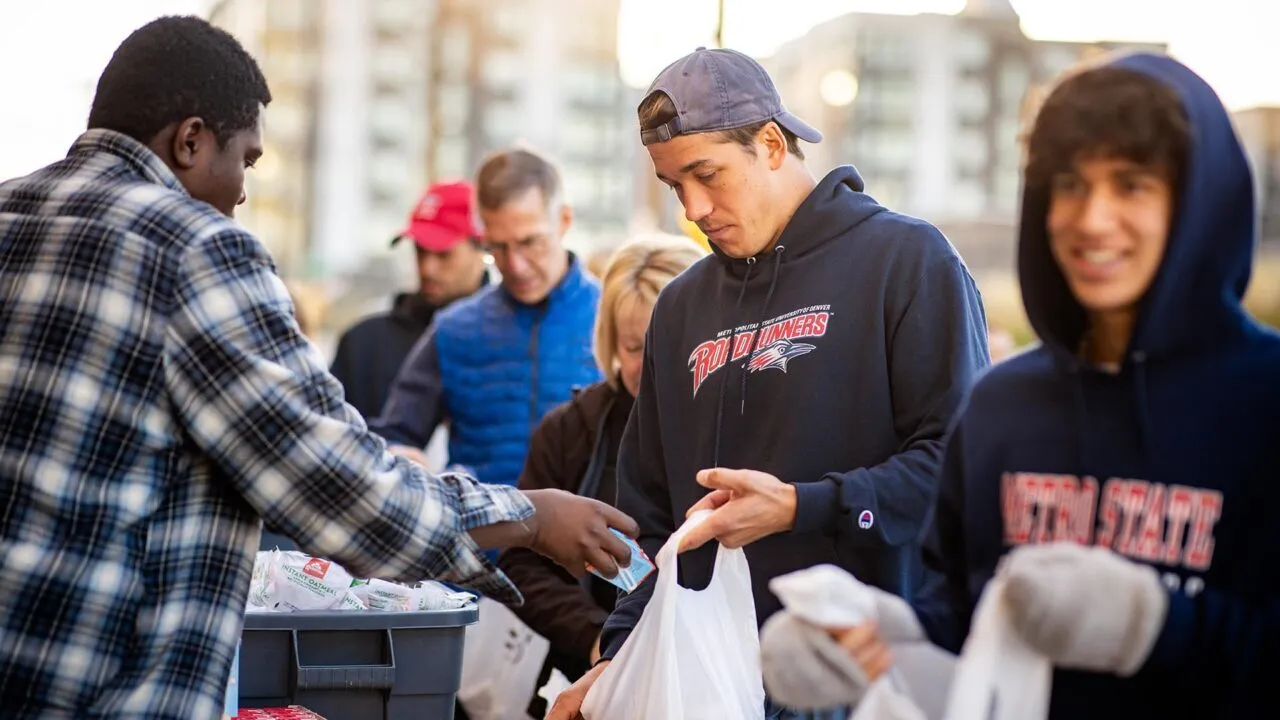A little-known but vital component of community welfare exists in Denver’s bustling urban scene, amidst its thriving culture and expanding economy: hunger relief. Despite its status as a thriving metropolitan hub, Denver, like many cities across the United States, grapples with food insecurity among its residents. However, within this challenge lies a beacon of hope – the extensive network of food donations and the dedicated individuals and organizations behind them. This article looks into the impact of food donations in Denver’s ongoing efforts to combat hunger, exploring the journey from surplus to sustenance for its most vulnerable populations.
The Scope Of Hunger In Denver
Before delving into the role of food donations, it’s crucial to understand the scope of hunger in Denver. While the Mile High City boasts a robust economy and a flourishing culinary scene, thousands of its residents struggle to put food on the table every day. Recent data from the Food Bank of the Rockies indicates that about one in eight Coloradans experience food insecurity, with the elderly and children being the most susceptible demographic groups. This harsh reality underscores how urgently the city needs to implement comprehensive programs to combat hunger.
Addressing The Root Causes Of Food Insecurity
For many people and families in Denver who are struggling with food insecurity, food donations are a lifesaver. However, merely addressing the immediate symptoms of hunger is not enough to create sustainable change. To truly combat food insecurity, it’s essential to address its root causes, including poverty, lack of access to nutritious food, and systemic inequalities.
Community-based organizations and grassroots initiatives in Denver are working tirelessly to tackle these underlying issues. By advocating for policy changes, promoting economic empowerment, and fostering community engagement, these efforts aim to create lasting solutions that go beyond temporary food assistance. In addition to providing nourishing meals, food donations also serve as catalysts for community engagement, fostering opportunities for individuals to actively participate in hunger relief efforts and discover avenues such as where to volunteer in Denver, thereby strengthening the fabric of solidarity and support within the city.
The Role Of Food Donations: From Surplus To Sustenance
Food donations play a pivotal role in Denver’s hunger relief efforts, providing much-needed nourishment to those in need while also addressing broader systemic challenges. At the heart of this process is the transformation of surplus food into sustenance for vulnerable populations.
1. Reducing Food Waste
One of the most significant benefits of food donations is their ability to reduce food waste. Like many other cities, Denver experiences a large annual food waste problem as a result of overproduction, shoddy aesthetics, and inefficient logistics. By redirecting surplus food from farms, restaurants, grocery stores, and other sources to those experiencing food insecurity, donations help minimize waste while maximizing resource utilization.
2. Providing Nutritious Meals
Although having access to wholesome food is crucial for general health and well-being, many people who experience food insecurity find it difficult to pay for or obtain wholesome foods. Food donations play a crucial role in bridging this gap by providing nutritious meals and ingredients to those in need. Surplus food is converted into filling meals that promote the recipients’ health and vitality through collaborations with nearby farms, food banks, and community organizations.
3. Fostering Community Engagement
Beyond meeting immediate nutritional needs, food donations also foster community engagement and solidarity. In Denver, numerous volunteer-driven initiatives and outreach programs rely on donated food to support their efforts. Whether through community meals, food pantries, or mobile distribution centers, these initiatives create spaces where individuals can come together, share resources, and support one another in times of need.
4. Amplifying Advocacy Efforts
Food donations serve as a powerful tool for raising awareness and advocating for systemic change. By highlighting the interconnected issues of food insecurity, poverty, and social justice, donations amplify the voices of those affected by hunger and empower communities to demand policy reforms and equitable solutions. Through advocacy campaigns, public education initiatives, and strategic partnerships, food donation networks in Denver are driving conversations and mobilizing action to create a more just and food-secure future.
Conclusion: A Path Forward
Like in other American cities, Denver’s journey from surplus to sustenance symbolizes more than simply the distribution of food; it also signifies a shared commitment to creating a society that is more resilient and egalitarian. By harnessing the power of food donations, communities in Denver are not only addressing the immediate needs of those facing hunger but also working towards long-term solutions that promote dignity, health, and opportunity for all. Let’s not lose sight of the transformative potential of surplus food and its important role in nourishing our communities and future as we manage the intricate difficulties of food insecurity.



